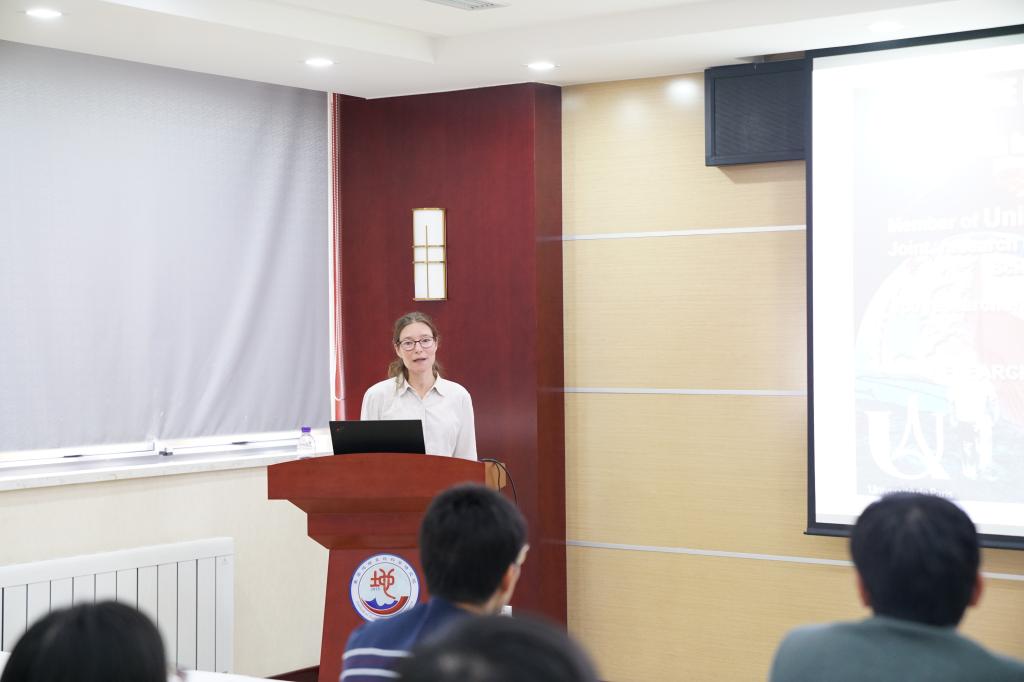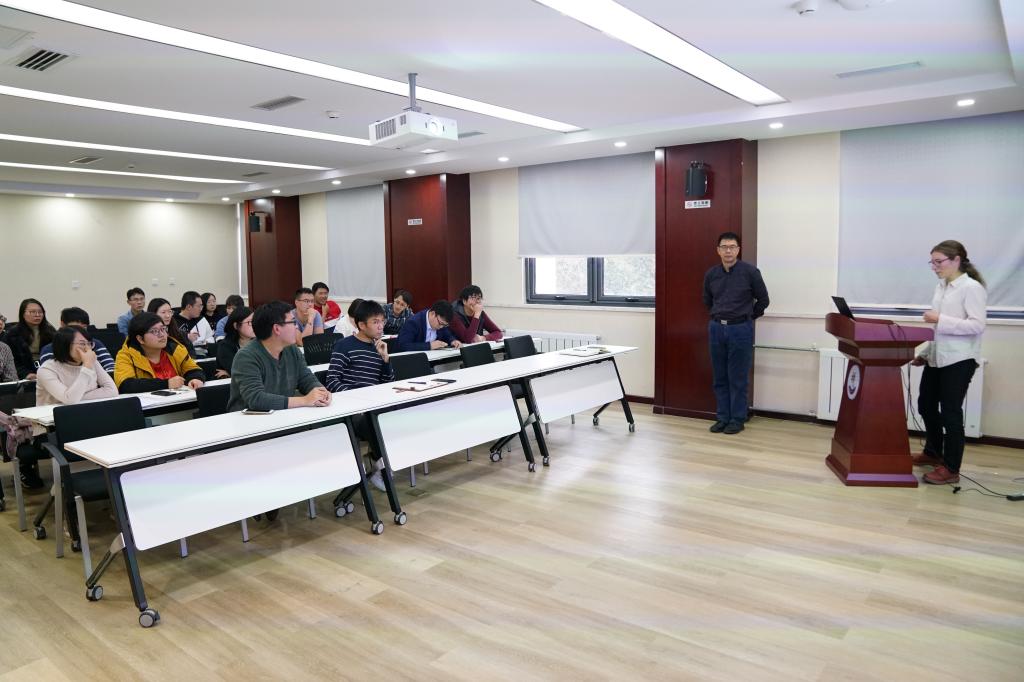Dr. Pascale Loucat, from the Institute de Physique du Globe de Paris, France (IPGP), came to visit ISESS in November invited by Prof. Jiubin Chen. During the visit, Dr. Pascale had thorough and in-depth discussions with teachers and students on MC-ICPMS and new isotopic test methods (B, Mg, Si, Ca, Ga, Sn, Sb, Ba isotopes).
On September 6th, 2019, Dr. Pascale delivered an academic report entitled Boron isotope measurements and application in environmental studies at the Lecture Hall 221, No. 16 Building. Dr. Pascale firstly introduced different research centers and directions in IPGP, her report started with the newest progress of Boron (B) tested by MC-ICPMS. A new sampling apparatus has been developed in IPGP in order to meet higher requirements of experiment and sample quantity. Through a series of lab test and improvements over a decade, the current spray nebulization together with automatic and quantitative sampling device can accurately test samples with small volume and low content of B, such as marine carbonate samples. Moreover, the minimum sample quantity for B isotope test has been confirmed on the basis of optimized parameters, which provide the possibility for the further study of geochemical properties of B in samples with very low content. This creative and innovative spirits encourage us to actively use our brains and hands in research, and make full use of the large-scale equipment platform provided by ISESS to obtain more accurate experimental data. Subsequently, Dr. Pascale reported the variation of the concentration and isotopes of dissolved B elements in the Seine River in France lasted a decade. Compared with 10 years before, the concentration of B elements in the Seine River was significantly decreased after 10 years, while the isotope signal of B increased apparently. According to the previous studies and environmental changes in the Seine River Basin, Dr. Pascale held the view that the concentration and isotope changes of B element were mainly due to the European Union’s emission limitation on the industrial chemicals, especially chemical reagents containing boron. This study indicates that human activities will have a huge impact on the natural environment.


Dr. Pascale Louvat currently works as research engineer at Institute de Physique du Globe de Paris, France (IPGP). Her research fields mainly include isotopic geochemistry, isotopic analysis methods, environmental isotopic tracing, trace element biogeochemical cycle, weathering and erosion of volcanic activity areas, continental hydrothermal system, etc. In particular, she has made a series of progress in boron isotope analysis methods, the reconstruction of paleo-ocean pH with boron isotopes, and boron isotope behavior in key zones. She has published nearly 100 papers in top international journals, such as science, GCA, EPSL, Anal. Chem., etc., and was cited more than 35000 times.